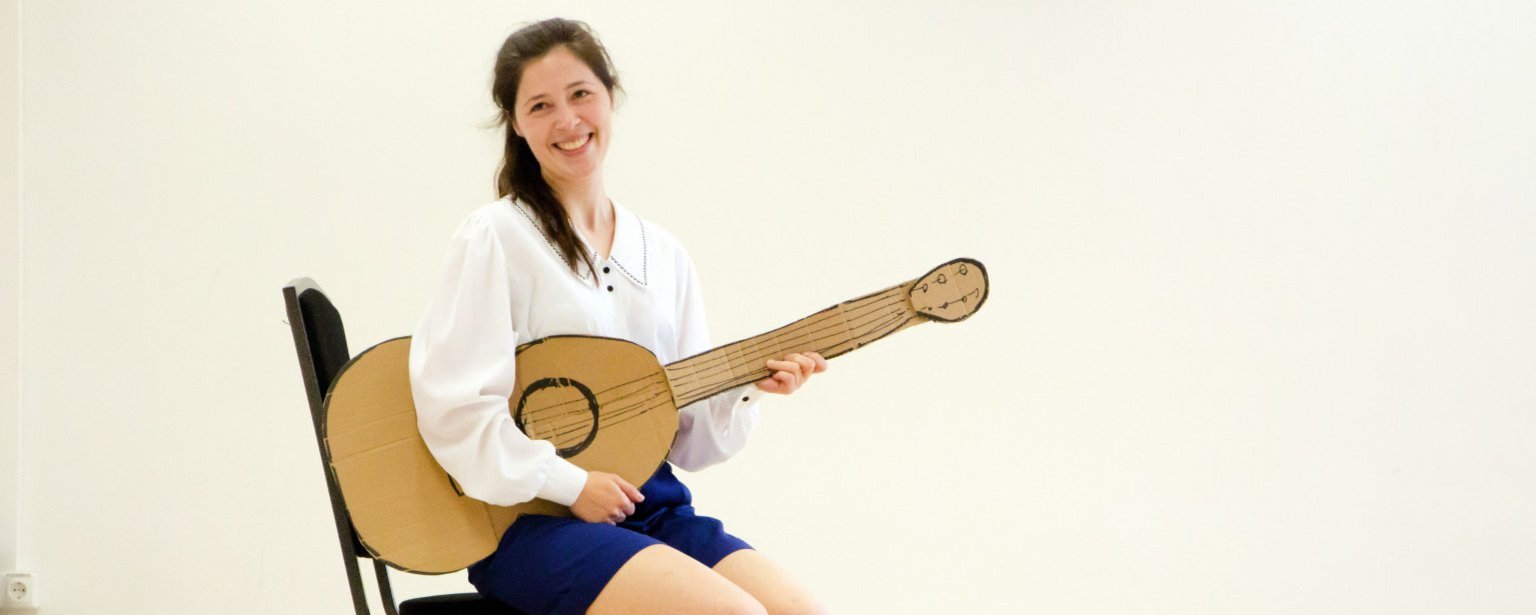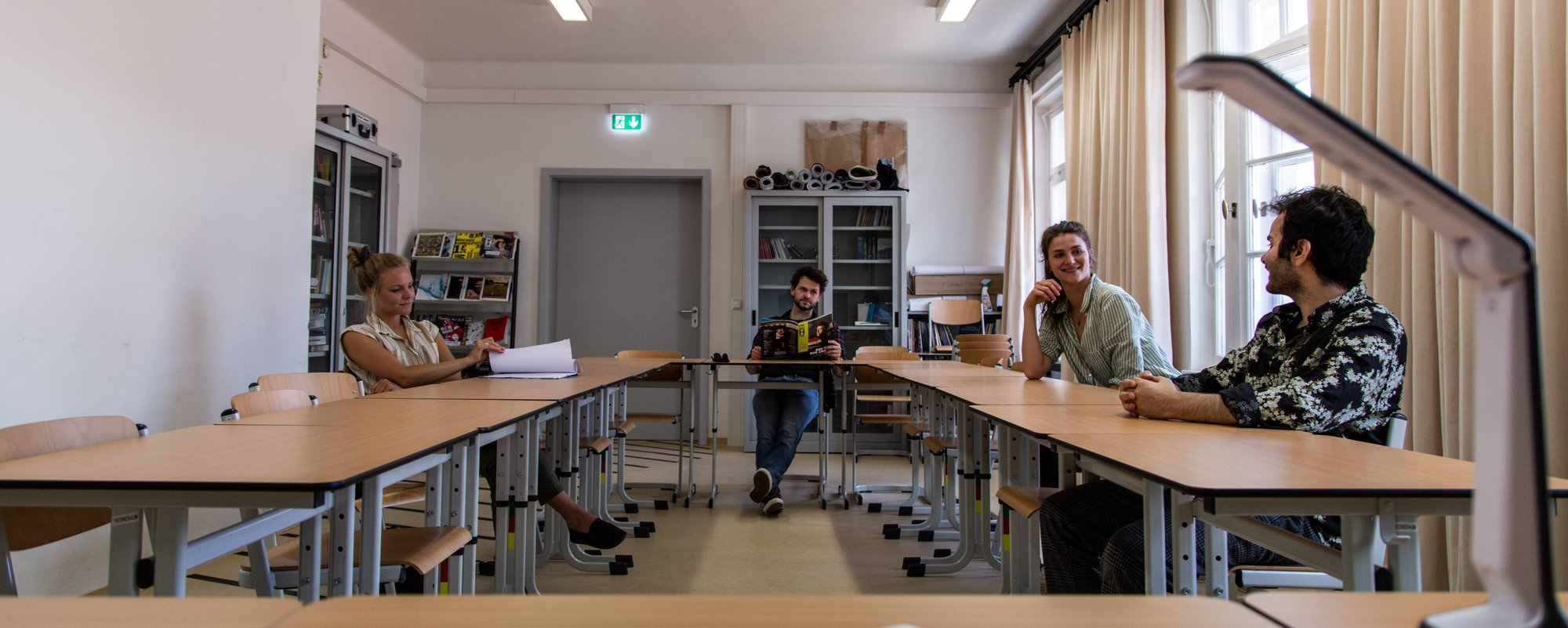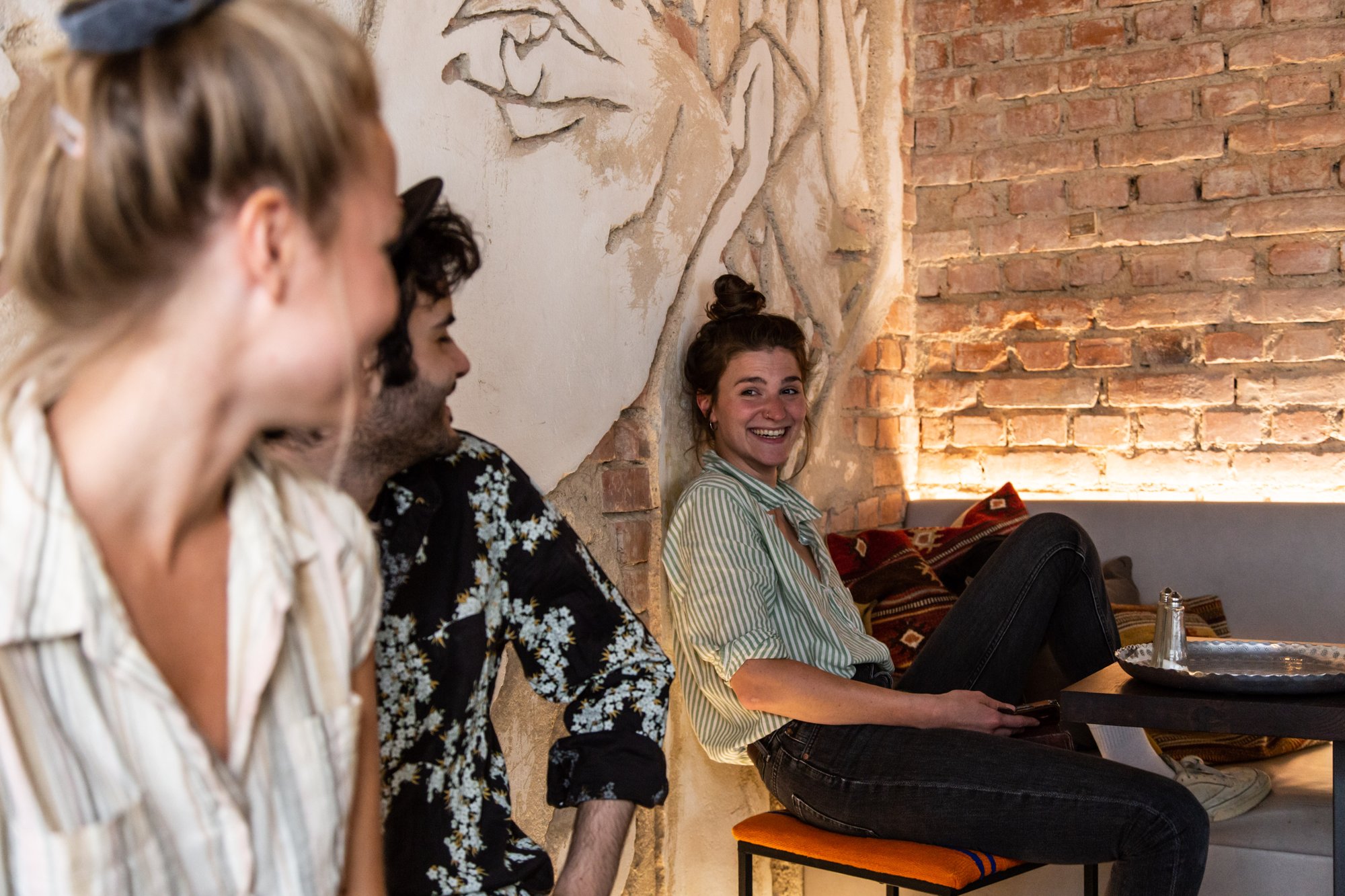
The Bavarian Academy of Dramatic Arts (BADA) trains theater educators who can perform effectively in an exceptionally diverse range of professional fields. Besides their theater education skills, the graduates of the Bavarian Academy of Dramatic Arts have also assimilated the fundamental principles of Stage Direction and working as Actors/Actresses. Their approach to their craft is informed by both pedagogical and artistic considerations, and they can draw on an immense range of theatrical techniques to suit their purposes. And just as importantly, they have internalized the nature of working in the theater and its demands.
The foundation course initially provides an introduction to the work of the actor. This insight into the actor's perspective enables the students of Theater Education to make important discoveries for leading a wide variety of performance groups.
Besides this, the students begin gathering experiences in the specialist field of Theater Education Practice in the first year, followed by the specialist field of Stage Direction Practice starting in the second year. This includes putting on their own theater production. External theater education projects are also completed, in some cases independently with technical supervision, in others assisting experienced theater educators.
The students will engage with the technical theoretical precepts of their profession throughout the training course. Inspiration is born of the interplay between theory and practice. At the same time, classes remain focused on practice and the profession. Electives and specializations afford room to explore individual talents and interests, and complete the training of a fully developed theater educator.

1. Language and Voice:
Besides learning the basic principles of elocution and the vocal tract, the students also receive instruction in rhetorical models for using the voice effectively in a wide variety of working and rehearsal processes, so they can present productively. In the singing lessons, they learn about the link between community music making and strengthening the group, as well as conveying feelings through the voice. In the process, the students develop an awareness of the effect of their own personalities on their surroundings. The practical experience aspect is completed with style trends in the musical theater and music theory.
2. Body and Movement:
The study of movement for Theater Education at the Bavarian Academy of Dramatic Arts is designed to prepare students for the modern theater, to train the body as a vehicle for representation and performance. It is based on elements from Humphrey/Limon, Cunningham, Post Modern, Release and other body-experience techniques. Particular emphasis is placed on precise and above all deliberate, expressive movements. The medium of improvisation helps to become aware of one's own body with its capabilities and expressive power, and to develop it further. Activities are focused on the relationship between space, power, time, and always on inner attitude as well. Influences are the works of Jacques Lecoq, Pina Bausch and the theater of Christoph Marthaler and Falk Richter.
3. Dramatic Performance:
In its practical orientation in the area of Dramatic Performance for theater educators, the Bavarian Academy of Dramatic Arts draws on the European tradition, with particular reference to the ideas of Bertolt Brecht and Konstantin Stanislavski. Practical application remains at the heart of the instruction. Individual creativity is stimulated and individual gifts are nurtured. Technical ability and artistic challenge are emphasized in equal measure.
4. Stage Direction Practice:
Through the medium of their own production in the "Youth Theater" genre, the students experience the entire lifecycle, from play selection to premiere on one of our studio stages. Supported by the supervision by the specialist instructors, they prepare and present a stage direction concept, develop props lists, arrange rehearsal schedules, and together with the Acting students work out their own adaptation of the play template. The heart of this practical project is centered on process orientation and technical implementation. Workshops led by external figures from the theater scene also provide the students with further artistic input.
5. Theater Education Practice:
The Theater Education Practice course concentrates on the transfer of methods and knowledge through "first-hand" experience: Project tasks concentrate successively on various major aspects such as object theater, biographical theater, site-specific theater, etc. Excursions to the "licht.blicke" youth theater festival and the "Panoptikum" children's theater festival in Nuremburg, for example, are also included in the course, as are the conception and performance of specific external performance activities on the Federal Theater Education Day entitled "More Drama, Baby". Extramural work experience placements provide an insight into the work of experienced course instructors. Open holiday classes for children (BADA Children's Acting school) and in-house acting clubs for young people and adults (e.g., BADA Youth Club) allow aspiring theater educators to gain additional, direct experience working with children, adolescents and adults.
6. Technical Theory:
In order to forge a link between the knowledge acquired in practical work and the associated theory, Technical Theory comprises a broad spectrum of input for the students, and completes the training program. Methodology and didactics of Theater Education, workshop structures, group dynamics and special features of specific target groups are included, as are pedagogics, psychology and sociology. Theory of theater and stage direction, drama and textual analysis, theater and literary history address the theatrical aspects. Additionally, the students are given insights into activities in support of production, such as costume and make-up, musicology, project management, stage and lighting technology as well as self-management and cultural management.
Specializations
Students of the Academy may elect to pursue additional specializations in the following fields:
- Singing
- Dialect acting
- Children's theater
- Dramatic writing/Script writing
- Lighting and sound engineering
The specializations entail additional commitment, above and beyond the actual training course.
Acceptance for these specialization courses is contingent on passing an aptitude test (does not apply for all specializations).
The specialization courses will only be held if there are sufficient numbers of participants.


